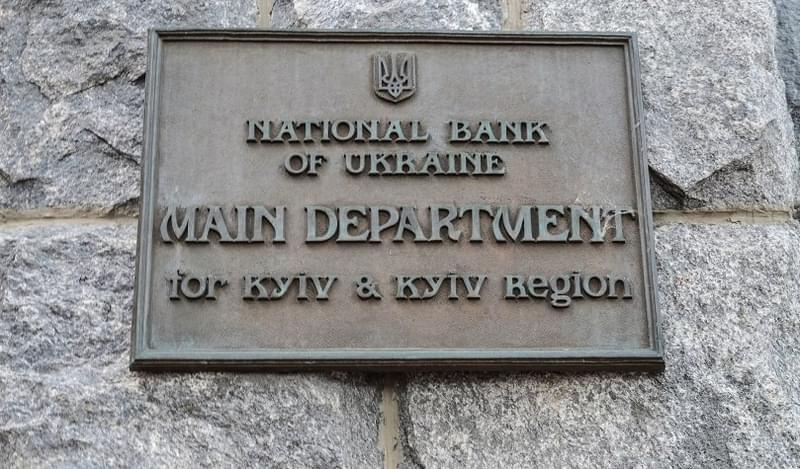The Ukrainian government on Sunday announced its decision to nationalize the country’s largest lender, PrivatBank, after it reported a capital shortage of UAH148bn (US$5.6bn), stemming mainly from risky lending practices and corporate loans to companies affiliated with the bank’s shareholders.
The bank is currently owned by Ukrainian tycoons Igor Kolomoisky and Gennady Bogolubov. It will be headed by Ukraine’s ex-finance minister Oleksandr Shlapak, who replaced Oleh Horokhovskiy.
The nationalization is part of the process to shake-up the EU candidate’s struggling banking sector to comply with the conditions of a US$17.5bn bailout set by the IMF. In a statement, the IMF praised the decision as an “important step in [the bank’s] efforts to safeguard financial stability.”
The finance ministry noted that, after the debt restructuring is complete and the bank’s health improves, it will be sold off. Some media reports on Monday suggested that the European Bank for Reconstruction and Development might purchase a stake at that stage, pending a successful clean-up.
As the news emerged, the country’s president Petro Poroshenko urged depositors to stay calm, insisting that their savings are safe and they are free to withdraw at any time.
PrivateBank’s has a number of outstanding Basel-III compliant securities with embedded bail-in clauses, meaning that any shortage of liquidity would be compensated at the expense of its shareholders and creditors rather than a bail-out from a third party – usually the government.
The regulations were introduced in the aftermath of the 2008 global credit crisis, which saw a number of banks deemed “too big to fail” and bailed out by governments and Central Banks.
According to reports in the local press, recapitalization of the bank will take place in stages. In the first stage, the Ukrainian government will issue a UAH43bn (US$1.3bn) bond, which will also take into account the holders of PrivatBank's Eurobonds in a bail-in.
"The budget hole is UAH148bn,” said Ukraine’s Central Bank governor Valeriya Gontareva. “We proposed to the Finance Ministry to additionally capitalize the bank for UAH116bn, with UAH32bn in unburdened liabilities of PrivatBank for bail-in.”
“As far as I can remember, this case is unique in that a CIS bank is exercising its bail-in clause. That sets an interesting precedent for other CIS and emerging market banks that may find themselves in a similar situation,” commented Sergey Dergachev, Senior Portfolio Manager and Lead Manager for Union Investment Privatfonds, adding that at this stage implications of this case for the sector are still unclear.
PrivateBank’s Eurobonds due 2021 last week traded at about 57 cents on the dollar - and yielding more than 29%, compared to 8.97% seen on its restructured sovereign notes maturing the same year, according to Bloomberg. The sovereign bonds jumped 1% amid the news, with longer-dated maturities, the 2027s and 2026s, jumping more than 1.3 cents.
Ukraine’s banking sector has come under increasing pressure to meet the IMF’s capital ratio requirements as the country continues on the road to recovery from a deep recession, in which the GDP plunged by nearly 17% since 2014.
The IMF-driven clean-up of the finance system led to the closure of more than 80 banks, mostly for opaque practices, related-party funding, or money-laundering.
But while the bail-out of a systemically important lender (it holds 36.5% of Ukraine's total deposits) is seen by many international figures as a positive and necessary step, it is already causing dissent from the opposition and the general public, angered by the losses of savings in the Central Bank’s crackdown on underperforming banks.
According to Dergachev, the short-term effect of the nationalization is positive, but it could also undermine long-term investor sentiment towards Ukraine.
“The fact that such a significant player in the sector, in terms of assets, loans and other metrics, was not allowed to fail is a positive sign. Its bankruptcy would have had severe social consequences, so the nationalisation was a last-resort measure to save the bank and the de-facto functioning banking system.”
“Recapitalizing Privatbank is one of the key demands of the IMF, so the chances of obtaining the loan are quite good now – as seen by the slight improvement in the sovereign bond’s pricing.”
But the fundamental issues in the economy – which is still crippled by the smouldering conflict with Russia-backed rebels, and rampant corruption – remain, a shadow over the long-term outlook.
“Fundamentally, Ukraine’s banking sector is in deep distress – with rising NPLs and capital shortages, the risks that pile pressure on the sector dynamics will prevail in the foreseeable future. And I hardly see any positive signals from Kiev about how it will act to fix this situation over the medium-term,” admitted the analyst.
The Ukrainian government said it expected the budget to be passed later in the week. Whatever the outcome, this case will continue to attract interest from international observers – not least because the consequences of nationalizing a bailed-in FI are unclear for bond-holders and potential investors alike.









